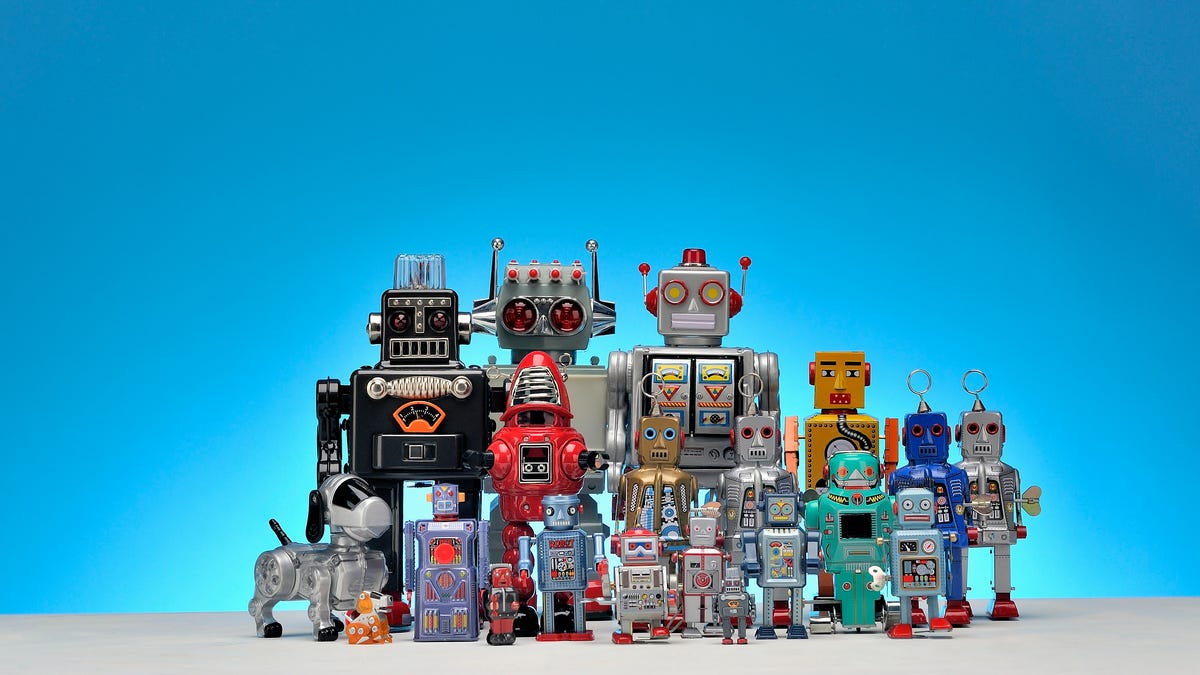What is a bot? Here's everything you need to know
Computer programs that talk like humans, aka bots, are the future. Let's explore what they are and what they can do.

You've probably heard about bots a lot lately, how they are here to make our lives easier and replace apps. Bots made a splash at Facebook's developer conference in April and now, despite being around since the beginnings of the Internet, they are getting their time in the spotlight.
Let this primer take you through everything you need to know about bots and why they matter now.
So, what is a bot exactly?
Imagine texting a number to order pizza and having it delivered without ever talking to a real human -- that's what bots are all about. Specifically, a bot is an application that performs an automated task, such as setting an alarm, telling you the weather or searching online.
Siri and Cortana are bots, as was Microsoft's Clippy and AOL Instant Messenger's SmarterChild. And who can forget Tay, the teenage chatbot designed by Microsoft who wound up tweeting racist and offensive messages?
Bots are everywhere in technology, ranging from malicious bots that come with a virus to search engine spiders that crawl the Internet looking for new Web pages to add. In this context, we're talking about chatbots, which can hold a conversation with you to accomplish a task.
What can bots do?
Today's bots can help us order food, shop for clothes, save money and find restaurants. For example, Digit helps you manage your money by showing your bank balance, upcoming bills and helping you save money through text messages. The Hi Poncho chatbot available in Facebook Messenger tells you the weather around you.
Many bots are programmed to act like humans when you talk to them so it feels like asking a person for help instead of just typing in a search engine.
How smart are these bots?
Not very smart at this point. While artificial intelligence keeps getting better, we all know how frustrating it can be to ask Siri or Cortana something only to have them not understand. Chatbots aren't doing too much better either, as my colleague Sean Hollister found while testing some of them on Facebook Messenger.
Where can I find bots?
You can find chatbots on many messaging apps, including Facebook Messenger, WhatsApp, Kik, and Telegram. Even the more work-focused service Slack has its own built-in bot that helps you set reminders and jot down notes. Twitter has bots too which will reply to you, but usually not offer any assistance. I've rounded up some of the top chatbots on each platform in the list below.
Facebook Messenger
- CNN -- Shows top news headlines
- 1-800-Flowers.com -- Order flowers
- HealthTap -- Get health advice from real doctors
- Shop Spring -- Shop for clothes and accessories
Facebook's CNN chatbot.
SMS
- Digit -- Automatically save money and get your bank balance with a text
- Magic -- Order (almost) anything and it gets delivered to your door
- Cloe -- Find restaurants, shops and services around you
- Assist -- Order food, message a business, mail a letter, find hotels and other tasks (also available on other platforms)
- Invisible Boyfriend/Invisible Girlfriend -- Fake a relationship with a bot
Kik
- H&M -- Get outfit ideas and shop looks from the store
- Vine -- See Vine videos based on keyword (like kittens or funny)
- TheScore -- Real-time sports scores and updates
- Sensay -- Connect to real humans to get advice
Telegram
- National Geographic Bot -- Sends you photos from Nat Geo photographers.
- Amazon Bot -- Search for products on Amazon
- MyPokerBot -- Play Texas Holdem poker in a chat
Are bots the future?
Yes and no. Some developers and companies believe that people are tired of apps and would rather use bots. Instead of having many different apps on your phone, you could have one with multiple bots that can help with different tasks, like ordering food or checking sports scores.
It's a good argument, but apps aren't going anywhere soon. What we're more likely to see in the future are smarter bots at home (like Amazon's Alexa), on our phones and in our car that will help automate our lives. But anyone who's been fed up with Siri when looking up something knows we're just not there yet.

